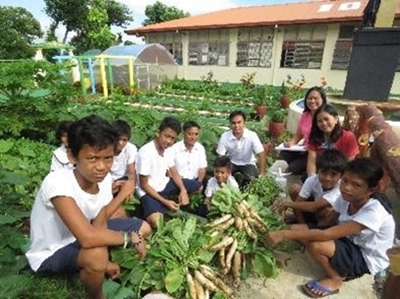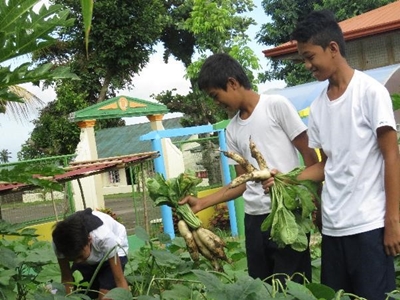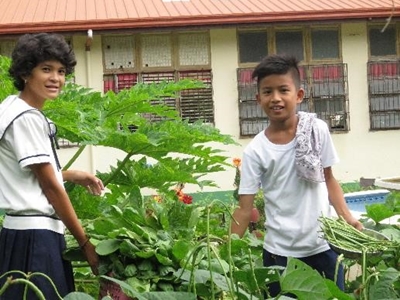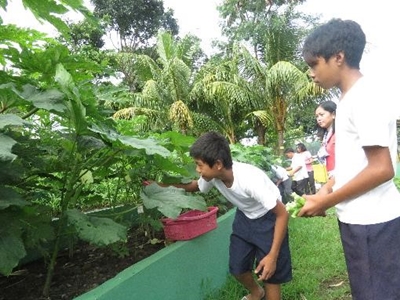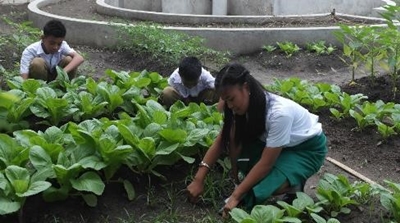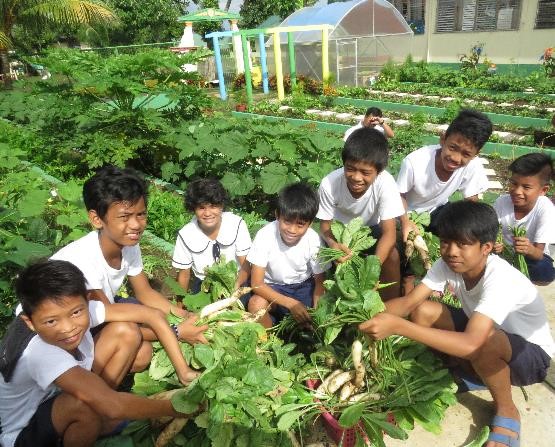 LAGUNA, PHILIPPINES - After months of planning and preparation, the six partner schools of the project, A Participatory Action Research on School- and Community-based Food and Nutrition Program for Literacy, Poverty Reduction, and Sustainable Development have established their vegetable gardens using the knowledge gained on the principles of edible landscaping, organic agriculture, climate smart agriculture, and nutrition.
LAGUNA, PHILIPPINES - After months of planning and preparation, the six partner schools of the project, A Participatory Action Research on School- and Community-based Food and Nutrition Program for Literacy, Poverty Reduction, and Sustainable Development have established their vegetable gardens using the knowledge gained on the principles of edible landscaping, organic agriculture, climate smart agriculture, and nutrition.
The gardens were embellished with old tires, used plastic bottles, plastic cups, stones, and other recycled materials following the concepts of edible landscaping.
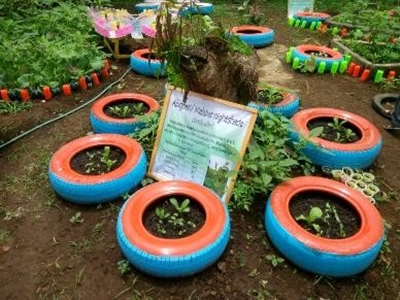 Some of the vegetables planted are pechay (Brassica rapa), mustard (Brassica juncea), eggplant (Solanum melongena), kulitis (Amaranthus viridis), tomato (Lycopersicon esculentum), saluyot (Corchorus olitorius), talinum (Talinum paniculatum), radish (Raphanus sativus), okra (Abelmoschus esculentus), cowpea (Vigna unguiculata), pole sitao (Vigna unguiculata sesquipedalis), and many more. The teachers and students have been actively involved in different activities such as weeding, watering, pest and nutrient management, and harvesting.
Some of the vegetables planted are pechay (Brassica rapa), mustard (Brassica juncea), eggplant (Solanum melongena), kulitis (Amaranthus viridis), tomato (Lycopersicon esculentum), saluyot (Corchorus olitorius), talinum (Talinum paniculatum), radish (Raphanus sativus), okra (Abelmoschus esculentus), cowpea (Vigna unguiculata), pole sitao (Vigna unguiculata sesquipedalis), and many more. The teachers and students have been actively involved in different activities such as weeding, watering, pest and nutrient management, and harvesting.
The gardens will be used as learning and demonstration plots for teaching English, Science, Mathematics, and Edukasyong Pantahanan at Pangkabuhayan (EPP) for Grade 4 and Technology and Livelihood Education (TLE) for Grade 7. In addition, the gardens showcase different crops for introduction to the students, their parents, and other visitors.
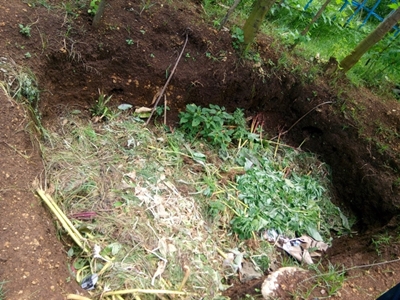 An important component of the school garden is the composting pit/area, to showcase not only compost production to be used in the gardens, but solid waste management for biodegradable materials like kitchen waste.
An important component of the school garden is the composting pit/area, to showcase not only compost production to be used in the gardens, but solid waste management for biodegradable materials like kitchen waste.
Finally, harvested crops are cooked and fed to the students as part of the feeding program, given directly to the students for home consumption, sold to outside buyers, or given to the school canteen.
The school and home gardens project is being implemented by the Southeast Asian Regional Center for Graduate Study and Research in Agriculture (SEARCA), the Department of Education (DepEd)-Laguna, and the University of the Philippines Los Baños (UPLB).
